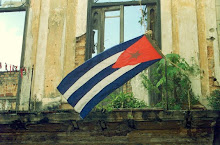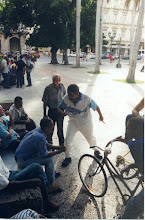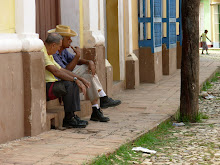“Cuba
se transnacionalizó” in recent years, a friend of mine said, referring to all
the cross-border activity that before was rare or impossible but is now
routine: Miami Cubans investing in businesses and real estate in Cuba; Cubans maintaining
roots, livelihoods, and legal residency inside Cuba and out; emigrants
returning to start businesses; etc., etc.
I
thought of this when I saw today’s news about an event
in Havana organized by dissident Rosa Maria Paya, who lives in Florida since
2013, admitted
as a refugee. She returns to Havana from time to time to engage in politics or
to tend to the family home, a sort of visiting dissident. She is far from the
first in Cuban history to engage in political activism from abroad – it’s a
tradition that spans centuries, with activists over the years reflecting the
possibilities of their time. Whether it’s possible to move beyond media events
and gain traction as a political leader with occasional visits is an open
question, but times are changing, and we’ll see. Cuba’s political opposition,
such as it is, is transnational now.
Here’s Reuters
on the Cuban government blocking some foreign participants from attending the
event, and here’s Prensa Latina
gloating about it.





No comments:
Post a Comment